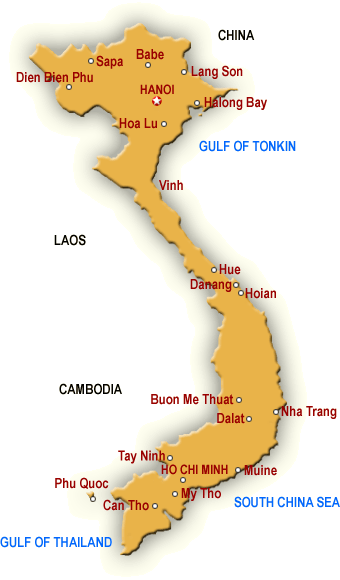Vietnam jails political blogger for tax evasion
 Hanoi - A political internet blogger who reported on protests during the Olympic torch relay through Vietnam in April was sentenced Wednesday to two and a half years in prison on charges of tax evasion.
Hanoi - A political internet blogger who reported on protests during the Olympic torch relay through Vietnam in April was sentenced Wednesday to two and a half years in prison on charges of tax evasion.
Nguyen Van Hai, 55, widely known by his pen name Dieu Cay, was convicted of having failed to pay 10 years' worth of value-added tax on part of his house that he rented to an optical shop.
Hai belongs to a bloggers' group called the League of Independent Journalists, who reported and participated in several small anti-Chinese protests during the torch relay through Ho Chi Minh City.
Hai's colleagues denounced the sentence as punishment for his reporting on protests against Chinese claims to the Spratly and Paracel Islands, two chains of islets in the South China Sea disputed by both countries.
The government shut down the protests, which were organized by activist groups but reflect popular antipathy towards China.
"I don't think the charges of tax fraud are real," a 48-year-old blogger who goes by the pen name Uyen Vu told Deutsche Presse-Agentur dpa. "He was arrested for expressing his opinions about China's territorial land-grab policy in the Spratly and Paracel Islands."
"Hai was arrested because he is advocating a free media," said another blogger, 40, who calls herself Ta Van Than.
Le Cong Dinh, 40, one of four lawyers representing Hai, said the rental contract had stipulated that the tax should be paid by the tenant. But the court ruled that when the tenant failed to pay, the owner became responsible. Hai had thus evaded 450 million dong (27,000 dollars) in taxes over 10 years.
According to Vietnam's penal code, evading taxes of between 1 and 500 million dong is subject to a fine of one to five times the amount evaded, or a prison term of six months to three years.
The press law in communist-ruled Vietnam requires all media outlets to be affiliated with a government agency, Communist Party organ, or other authorized body. Online blogging is popular and generally tolerated, but its legal status is unclear.
The Vietnamese media has grown increasingly independent in recent years, with newspapers publishing hard-hitting stories on corruption and economic problems to compete for readers.
But the government maintains careful control over which stories newspapers are permitted to cover. In May, two journalists who had aggressively reported on a 2006 corruption scandal were arrested, and senior editors at their newspapers who defended them were fired. (dpa)